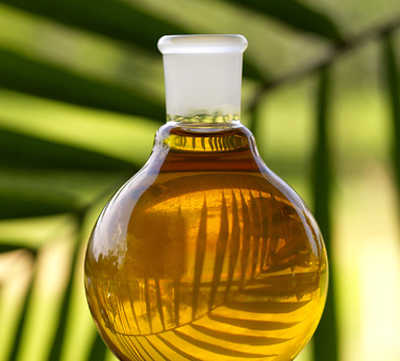Monday, 30 March 2015 17:41
 MUMBAI: The share of palm oil in India’s growing edible oil imports is expected to drop to the lowest since 2005/06 in the current year to October, as a narrower discount for prices of the tropical oil versus that of rival soyoil hurts demand.
MUMBAI: The share of palm oil in India’s growing edible oil imports is expected to drop to the lowest since 2005/06 in the current year to October, as a narrower discount for prices of the tropical oil versus that of rival soyoil hurts demand.
This shift in buying pattern at the world’s top palm oil importer could drag on benchmark prices that have shed 3 percent in 2015 amid ample global soyoil supplies. Weak Brent crude prices have also dragged by making palm an unattractive option for blending into biodiesel.
The share of palm oil in India’s total edible oil imports will drop to 65 percent, said Govindbhai Patel, a trade expert and managing director at GG Patel & Nihil Research Co.
“Incremental demand has been shifting to soyoil,” he said.
The tropical oil accounted for as much as 86 percent of India’s edible oil imports in 2007/08 and 68 percent in 2013/14.
While palm purchases could rise 5.6 percent to 8.4 million tonnes this year, it would be a smaller fraction of total edible oil imports that are seen up nearly 12 percent at a record 13 million tonnes, Patel said.
Palm’s share in India’s vegetable oil imports was lower at 58 percent in 2005/06, according to data from the industry body Solvent Extractors’ Association (SEA).
India is the world’s top importer of edible oils, with palm from biggest producers Indonesia and Malaysia accounting for most of the purchases. But falling prices of soyoil that Indians consider superior due to health benefits is denting palm demand.
Palm’s discount to soyoil has narrowed to $ 110 per tonne, from around $ 200 in January, SEA data showed, amid pressure from a bumper U.S. and South American soybean crop as well as a sluggish uptake by the biofuel sector.
The spread in forward markets has shrunk to $ 65, which could boost India’s soyoil imports by as much as 54 percent to a record 3 million tonnes this year, said Paul Bloemendal, commercials director at Ruchi Soya, India’s biggest edible oils importer.
India’s imports of other soft oils are also likely to climb, with rapeseed oil purchases seen nearly doubling to 375,000 tonnes due to an expected drop in local output, Patel said.
Sunflower oil imports may steady at last year’s record high level of 1.5 million tonnes, industry officials estimate.
“Consumers can now buy soft oils at levels where they were buying palm oil a year ago,” said Ruchi Soya’s Bloemendal. “We expect this to continue for the coming months.”
Copyright Reuters, 2015




























